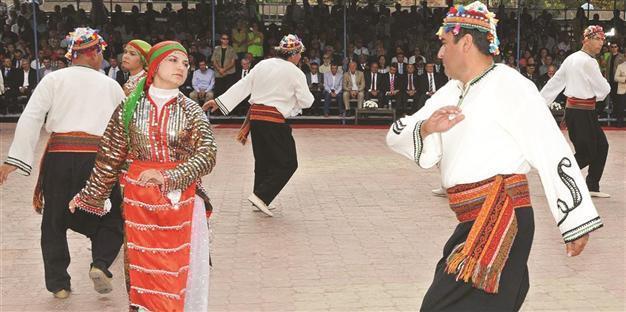Alevis uneasy on rights as government gives fresh promises
ISTANBUL – Hürriyet Daily News

This file photo shows Alevis performing the semah, a ritual dance performed during worship, in Nevşehir. Alevis are not content with reforms. DHA photo
Alevis are preparing to protest the democratization package, despite the government’s promises to tackle the concerns they raised in a separate package.
Rıza Eroğlu, vice-president of the Alevi Federation and chairman of the 700-year-old Erikli Baba Dergahı (dervish convent) in Istanbul, told the Hürriyet Daily News that they had no intention of waiting any longer to claim their rights.
“We have no intention of keeping quiet and waiting just because our rights are not returned back to us. We will do everything there is to be done through democratic channels. We are not keeping quiet anymore,” said Eroğlu.
The democratization package, which was announced on Sept. 30, by Prime Minister Recep Tayyip Erdoğan, lifts the headscarf ban in public offices, allows the right to education in one’s mother tongue and proposes to change the current electoral system, among other notable reforms. However, the package fell short of addressing the issues linked to the Alevi community.
Deputy Prime Minister Bekir Bozdağ had said the attempts to enhance “the Alevi question” were continuing and they would be handled as a separate issue. “Endeavors on the Alevi process are continuing. This issue will be announced to the public later on. The package is not final; new ones will follow,” Bozdağ had said after the democratization package’s announcement.
Eroğlu said although they had not expected a significant outcome for the Alevis from the package, Erdoğan had promoted it in such a way that they had become hopeful.
The Alevi cemevis do not have an official status as a place of worship within the Turkish legislation and the Alevi reverends, referred to as a “Dede,” do not receive salaries from the Directorate of Religious Affairs, two of the key demands from Alevis, apart from the removal of religious courses taught at schools.
‘Deep state behind’When asked what he thought about the change of Nevşehir University’s name to Hacı Bektaşı Veli University, the name of a 13th century Alevi philosopher, Eroğlu said it was to compensate Alevis after naming the third bridge to be built on the Bosphorus after the Ottoman ruler Yavuz Sultan Selim.
Sultan Selim, known in English as “Selim the Grim,” is known for the slaughter of around 40,000 Alevis.
Eroğlu said Erdoğan had a negative attitude toward Alevis, which was not comprehensible and behavior typical of the “deep state.” “The PM [is displaying behavior typical of] the ‘deep state,’ he has an incomprehensible attitude towards Alevis. The headscarf problem has even been resolved in this country, headscarves are even [allowed in certain military buildings] but the Alevis’ concerns cannot be addressed because the government has prejudices against Alevis,” said Eroğlu.
